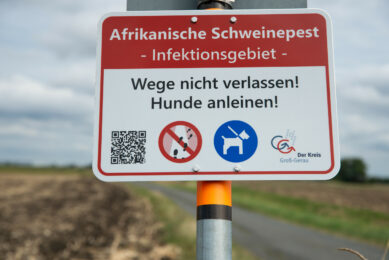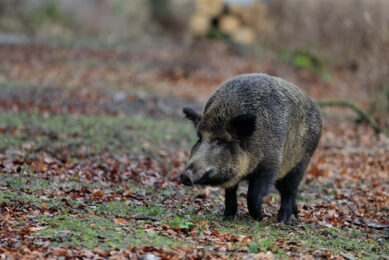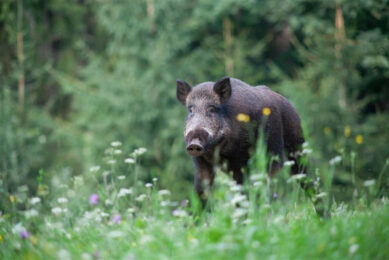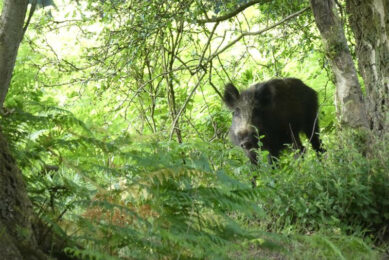ASF Germany: Hotspot vanished; count at 70 wild boar
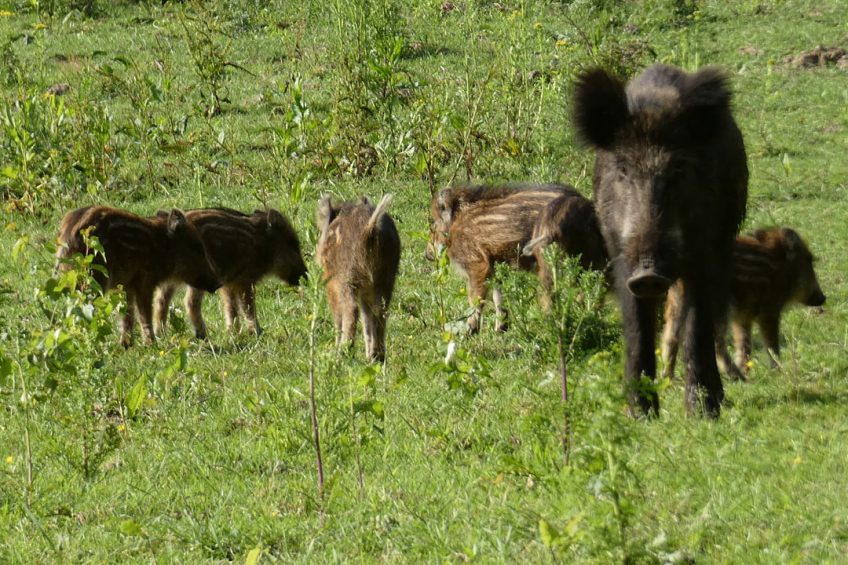
African Swine Fever (ASF) continues to be found in wild boar in eastern Germany, although in recent days not a lot of cases were confirmed. An alleged ASF hotspot, discovered by a drone last week, appears to have vanished.
Over the last week, reports of new ASF findings have been less frequent than earlier. Last week Saturday, October 11, on one day 10 cases were found – but ever since it has remained relatively quiet. After that day just 5 new cases were reported, one in the northern zone in Märkisch-Oderland, and 4 in the southern zone, including parts of the districts Spree-Neisse and Oder-Spree.
Carcasses close to the side of the inner zone
Most recent reports show that 2 of the ‘new’ dead wild boar, have been found close to the border of the inner southern zone near Neuzelle. When following geolocation data, shared by the World Animal Health Organization (OIE), the finding places even appear to be outside the zone. A spokesperson of Brandenburg state, however, indicated to Pig Progress that this occurred just inside this zone, which is why the markers have been placed there.
No ASF hotspot after all?
Positive sounds come from the northern core zone. Last week, Pig Progress reported about a drone search on an island in the Oder river, where searchers would have detected an ”ASF-hotspot” with numbers of sick and dead wild boar. At the time, the search teams did not want to enter closely to make sure the apparently sick animals wouldn’t run away, with the risk of spreading the virus.
New drone flights, however, have allegedly shown that the animals had vanished anyway. Hunting magazine Jagd Erleben wrote: “At further control flights over the island no more carcasses could be seen. That’s when the original footage was studied once more with a wildlife biologist and would have reached the conclusion that – contrary to fears – the animals must have been sleeping and were not about to die. The new footage would have shown live animals as well. So all in all it is unclear whether the wild boar are infected with ASF at all.”
ASF meets Covid-19
The ASF situation is also Covid-19 at the moment. Due to ASF-related export limitations to countries outside the EU, demand for German pigs is not as high as it would normally be. In addition, 2nd wave of Covid-19 infections is reaching the European continent, with infections of staff of slaughterhouses as a result, e.g. in Lower Saxony state.
Weidemark slaughterhouse in Sögel, even had to be closed temporarily and the Vion slaughterhouse in Emstek, where the slaughter capacity was reduced. Barbara Otte-Kinast, agricultural minister for Lower Saxony, estimated last week that on a weekly basis 120,000 pigs could not be slaughtered.

Track the movement of African Swine Fever
For everything you need to know about ASF, from the latest outbreaks to controls stay up to-date…
A ‘white zone’ at the border to stop ASF
Germany is planning to start working with so-called ‘white zones’, or zones of 5km around the 2 inner zones. This would be fenced off on the inside as well as the outside with a fence of 1.20m. Construction for these fences has already started – completion is expected to take a few weeks. Once the fences are ready, the intention is to shoot all game within the fences, creating a wild boar free corridor. A similar approach was used in both Belgium and the Czech Republic.
In the context of white zones, German agricultural title Top Agrar reported that German federal agricultural minister Julia Klöckner has been speaking with her Polish counterparts to erect an effective wild boar barrier at the Polish border with Germany, complementing those in Germany. Germany even offered to pay for it – so far the Polish allegedly have been hesitant.



